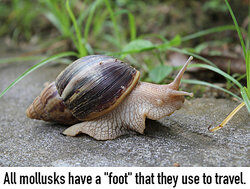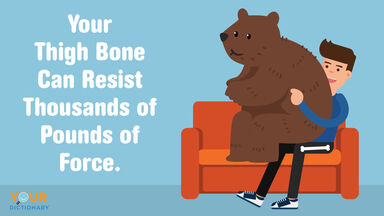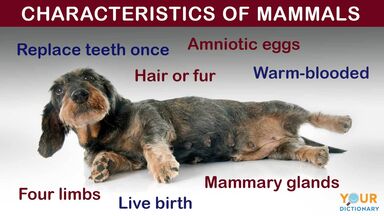Bone Definition
- The subject of a dispute.
- Grounds for a complaint or dispute.
- In one's innermost feelings:
knew in my bones that I was wrong.
- To an extreme degree:
was chilled to the bone; cut the budget to the bone.
- to have an intuition or presentiment
Idioms, Phrasal Verbs Related to Bone
- bone of contention
- bone to pick
- in (one's) bones
- to the bone
- feel in one's bones
- have a bone to pick
- make no bones about
- throw someone a bone
- to the bone
- work one's fingers to the bone
Origin of Bone
-
From Middle English bon, from Old English bān (“bone, tusk; the bone of a limb”), from Proto-Germanic *bainą (“bone”), from Proto-Germanic *bainaz (“straight”), from Proto-Indo-European *bhey- (“to hit, strike, beat”). Cognate with Scots bane, been, bean, bein, bain (“bone”), North Frisian bien (“bone”), West Frisian bien (“bone”), Dutch been (“bone; leg”), German Low German Been, Bein (“bone”), German Bein (“leg”), German Gebein (“bones”), Swedish ben (“bone; leg”), Icelandic bein (“bone”), Breton benañ (“to cut, hew”), Latin perfinēs (“break through, break into pieces, shatter”), Avestan byente (“they fight, hit”). Related also to Old Norse beinn (“straight, right, favourable, advantageous, convenient, friendly, fair, keen”) (from whence Middle English bain, bayne, bayn, beyn (“direct, prompt”), Scots bein, bien (“in good condition, pleasant, well-to-do, cosy, well-stocked, pleasant, keen”)), Icelandic beinn (“straight, direct, hospitable”), Norwegian bein (“straight, direct, easy to deal with”). See bain, bein.
From Wiktionary
-
French bornoyer to look at with one eye, to sight, from borgne one-eyed.
From Wiktionary
Origin unknown; probably related in some way to Etymology 1, above.
From Wiktionary
Middle English bon from Old English bān
From American Heritage Dictionary of the English Language, 5th Edition
Find Similar Words
Find similar words to bone using the buttons below.





